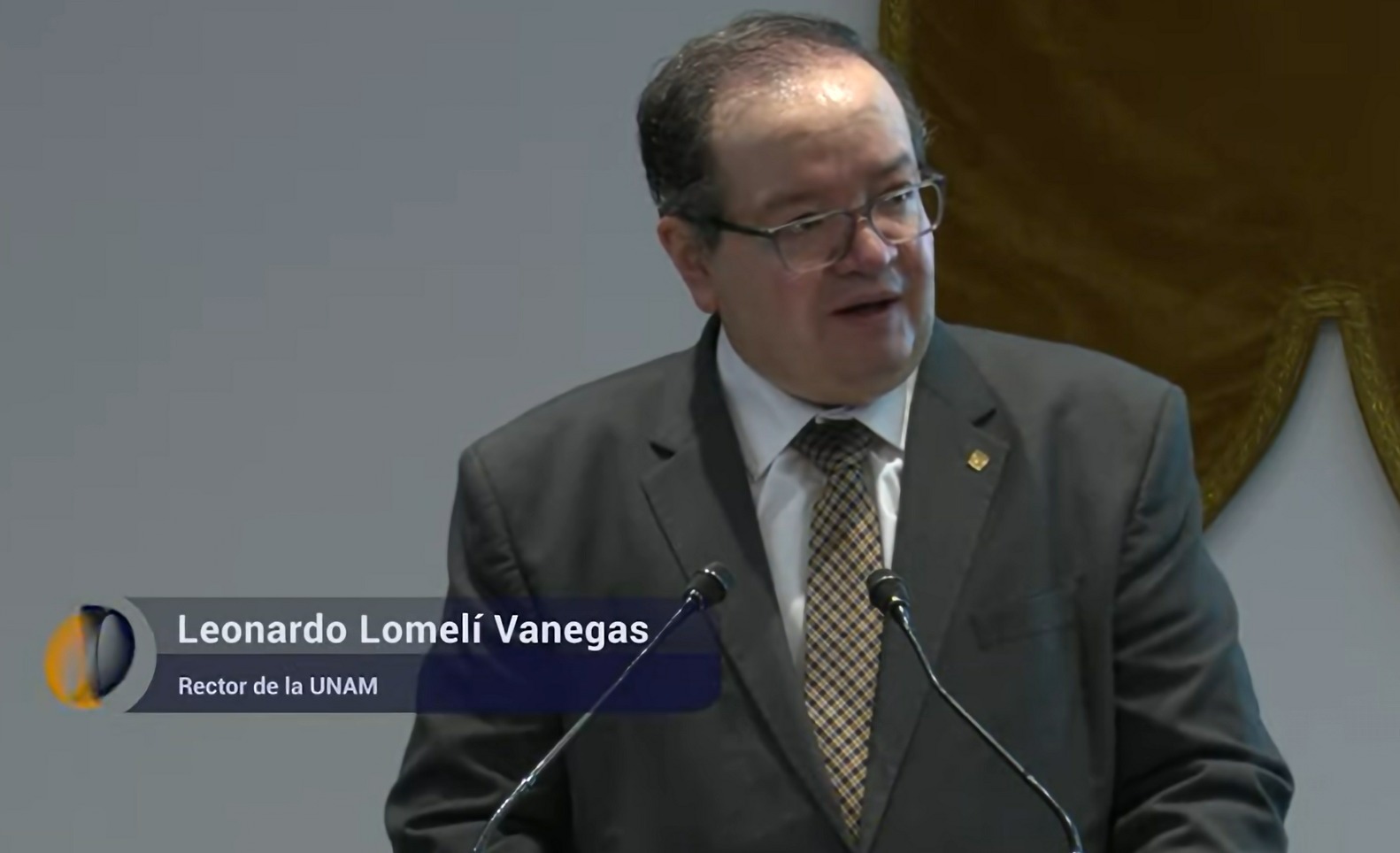
After stating that a narrative about the USMCA prevails in Washington that does not correspond to reality, the rector of UNAM, Leonardo Lomelí Vanegas, pointed out that in the renegotiation of the trade agreement, Mexico must seek a strategic alliance with Canada.
When giving the inaugural lecture, “The Strategic Integration of North America,” he explained that, with the arrival of Donald Trump to the White House, Canada proposed negotiating its trade agreement independently with the United States, but today the prevailing view is that Mexico and Canada should unite in this renegotiation and together face this challenge.
The Rector considered that the protectionist measures of the United States, "beyond the rhetoric, will be something temporary", since the long-term trend is the strengthening of the economic integration of North America.
“Not doing so would mean losing more competitiveness in an increasingly globalized world and putting the region at a disadvantage, notably compared to other emerging economies and to China. I believe that it is counterproductive to the United States' own interests to 'mutilate' this relationship and not bet on greater integration of North America,” said Lomelí Vanegas.
In the conference that is part of the Colloquium “The Other Side: New Perspectives on the Mexico-United States Relationship”, Lomelí Vanegas highlighted that the economies of the three countries represent around 29 percent of the world's gross domestic product (GDP); and between 2003 and 2024 their trade went from 632 billion dollars to more than 1.6 trillion dollars annually, with an average growth of 5 percent per year.
In addition, he said, 56.5 million jobs are generated in the region. Of these, 36 million are concentrated in the United States; six million in Canada; and 14.5 million in Mexico come from sectors linked to trade, which represent 24 percent of total employment.
At the meeting organized by UNAM – through the Center for Research on North America –, El Colegio Nacional and the newspaper El Universal, the Rector explained that the region is home to 6 percent of the world's population (513 million inhabitants) and its economic weight (24 billion dollars) is greater than that of the European Union (16.6 billion dollars). In other words, it is only surpassed by the Regional Comprehensive Economic Association, made up of 15 countries in the Asia-Pacific region.
At the Jorge Carpizo Auditorium of the Humanities Coordination, he insisted that there is a promising future for relations between Mexico and the United States for economic integration and greater academic relations.
“If we look at the region's potential in the long term, we will come to the conclusion that it would be very costly for the United States to ignore the importance of the relationship with Mexico, the economic and commercial relationship. We believe that in the long term this integration will deepen and that the renegotiation of the Treaty (T-MEC) can be an opportunity to advance regional integration,” he reiterated.
Lomelí also said that strategic alliances should be established to strengthen infrastructure, employment and supply chains. In addition, relocation or nearshoring could be used as a strategy to strengthen regional manufacturing, foster academic alliances and promote talent development, among other aspects.
On her occasion, the current president of El Colegio Nacional, Susana Lizano Soberón, stressed that relations between both nations have gone through complex periods, marked by challenging political and socioeconomic situations. However, in most cases there are also efforts at cooperation that have led to beneficial solutions for both countries.
“At El Colegio Nacional we are convinced that the parallel history between our country and the United States has enriched both nations; in particular, in scientific, academic, cultural and artistic collaboration,” he said, adding that the joint work of universities and public and private institutions on multiple projects has benefited scientific, technological and cultural development.
CISAN Director Graciela Martínez-Zalce said that it was a day of sensible reflection on the region, in which one could look beyond Google maps, executive orders, explosive messages on social media and anti-immigrant and “nativist” rhetoric.
Meanwhile, David Aponte, editorial director of El Universal, stressed the importance of, in times of post-truth, digital oligarchy, authoritarian temptations and the lack of balance of power, the academy and journalism coming together to listen, understand and inform better.
You may be interested in: US tariffs on Mexico paused; working groups to be set up on security and trade

